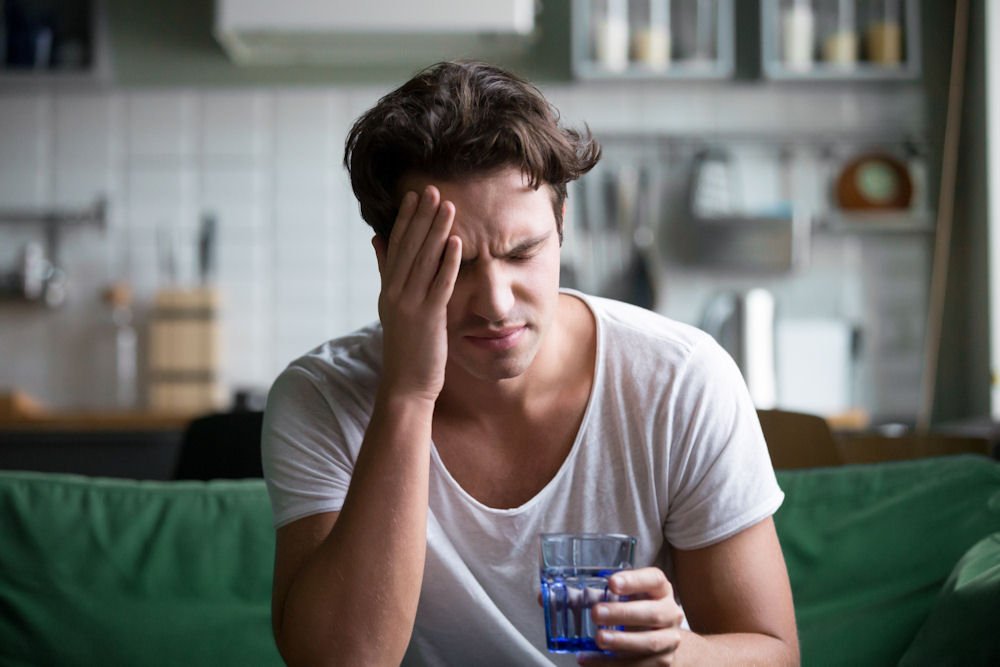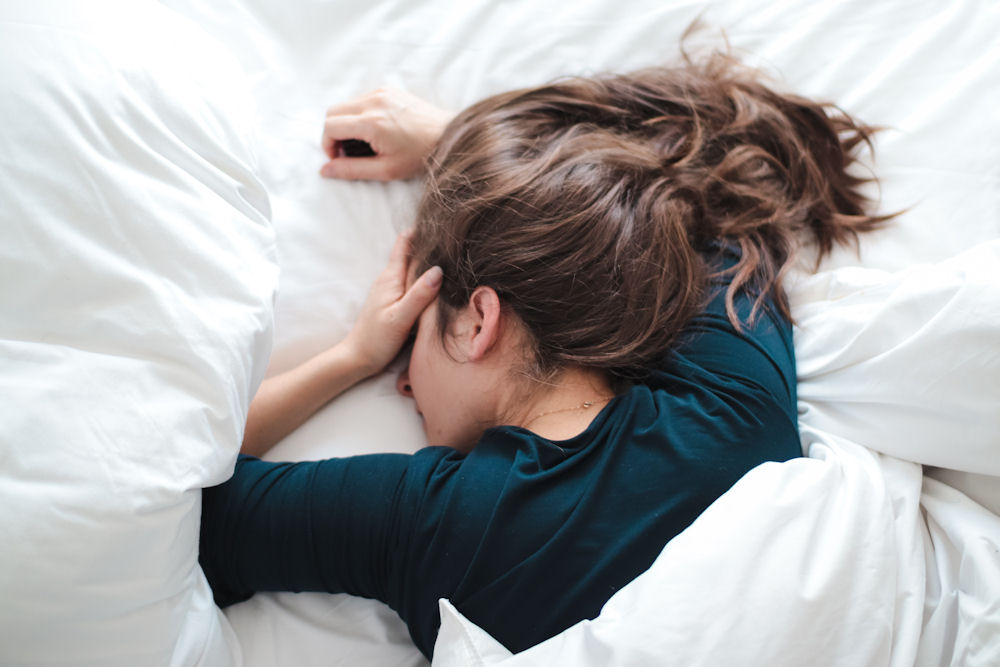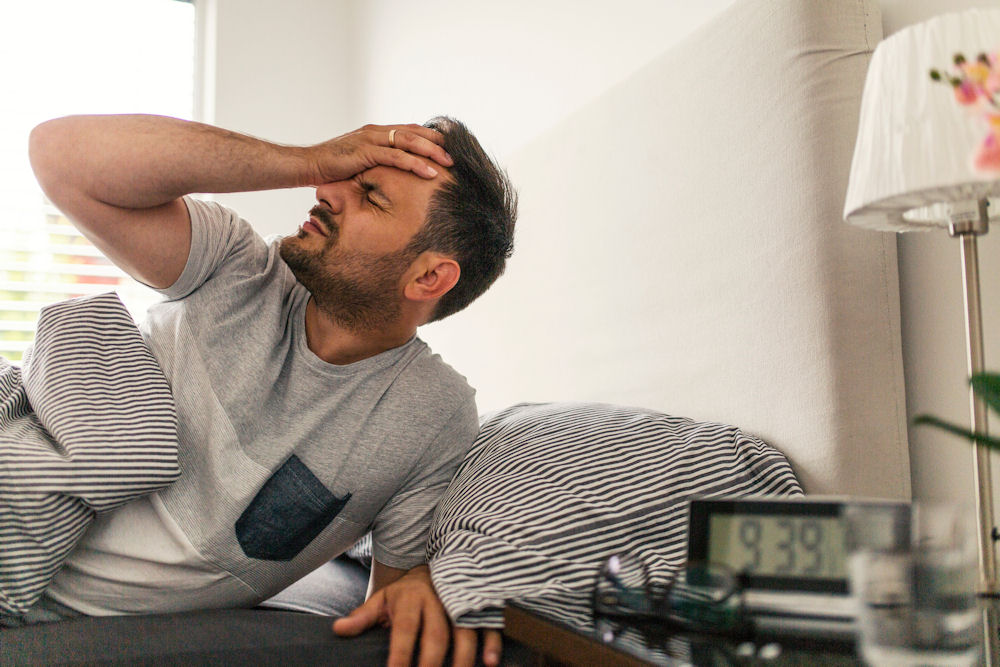Put simply, professional help from a trained therapist is how to deal with hangover anxiety most efficiently. Unfortunately, most sufferers don’t get the help they need. Worse yet, they pass it off as just excessive drinking that leaves you feeling less than yourself. The truth is it is so much more than that and nobody can know how to deal with hangover anxiety without proper guidance.
At Origins Texas Recovery in South Padre Island, Texas, we provide men and women who are struggling with the challenges of addiction and mental illness with treatment programs and resources to help them manage their conditions, such as hangover anxiety effectively. Here is everything you need to know about hangover anxiety and how to cope with its side effects.

What is Hangover Anxiety?
Hangover anxiety is a serious issue that is characterized by unexplained and unfounded excessive worry the morning after drinking. Hangover anxiety does not manifest itself as normal hangover symptoms. Rather, hangover anxiety symptoms are predominantly mental manifestations that can cause serious mental and physical harm. These mental and bodily tolls can leave you stressing hopelessly over how to deal with hangover anxiety. Studies cite that roughly 22 percent of all social drinkers are affected by this morning-after condition. If you suspect you or someone you love may be a sufferer of hangover anxiety, get the help you need today.
What are the Symptoms of Hangover Anxiety?
Hangover anxiety produces numerous mental, behavioral, and other internal cues that can help you identify symptoms at the source. Reach out to a therapeutic professional if you suffer one or more of the following symptoms.
Stomach aches or unusual stomach discomfort the morning after drinking can be much more than just an upset stomach. Many times it is a symptom of a deeper issue of hangover-induced stress. Over time, gastrointestinal problems stemming from anxiety or stress can cause ulcers or other permanent digestive problems.
If you wake up with an unusually fast heart rate or feelings of heart flutters the morning after drinking, it may stem from hangover anxiety. When you wake up with these hangover-induced stresses, your body often adapts to how you feel. This means an accelerated heart rate will lead to panic, further anxiety, and further issues. It is vital to force yourself to remain calm to prevent further bodily harm and palpitations from occurring.
Perhaps the most common symptom of hangover stress conditions is being quick to anger. This increased irritability will often result from relatively minor things or from circumstances that do not merit an angered response. For example, hangover-based anxiety and irritability may arise simply by being in the presence of anybody when you prefer to be alone. Or it can occur when somebody speaks to you when you’re not in the mood to interact. Whatever it may be, anxiety conditions stemming from a hangover will often cause one to be quick to anger for no apparent reason.
Waking up in cold sweats or developing excessive perspiration upon awakening is another key indicator of this anxiety condition. It’s important to note that these sweats won’t be due to heated atmospheric conditions. It is rather a bodily response to a deeper mental stressor. This, in turn, can cause hangover symptoms and dehydration to worsen, making you sick or even bedridden.
Extreme sadness for no apparent cause the morning after drinking is a direct result of the physiological aftereffects of alcohol. This can even result in temporary depression. This will leave you feeling empty, lonely, and excessively depressed in addition to physical hangover symptoms. In cases like this, it is vital to seek immediate treatment.
Some anxiety symptoms stemming from a hangover can appear similar to withdrawal symptoms, such as body shakes. This occurs when the mind is so overcome with stress that it manifests itself in uncontrollable body shakes. These involuntary spasms can be frightening, inducing further panic, including but not limited to panic attacks or other organ strains. It is important to seek immediate care when experiencing any of these aforementioned symptoms, especially in the case of body shakes.
Hangover anxiety can become so extreme that it induces extreme paranoia. This means unnecessary fears and mental delusions that can vary per individual. Paranoia can be so severe that it becomes auditory and hallucinatory in the most extreme cases. If you have experienced severe paranoia during or the morning after drinking sessions, dual diagnosis therapy may be necessary. Speak to an assessment specialist to see if this treatment is right for you.
What Causes Hangover Anxiety?
Hangover anxiety is a byproduct of the harm caused by drinking. The following outlines the biological and bodily reactionary causes of hangover anxiety.
GABA receptors, the neurotransmitters responsible for calming the central nervous system, are heavily stimulated by alcohol. While this causes you to be calm during drinking sessions, these GABA receptors need time to recover. This means, during the recovery period when these calm-inducing neurotransmitters are building up, your brain is susceptible to excessive anxiety. This exploits your mind to be vulnerable to stress while GABA receptors are being suppressed and recovering during a hangover.
Hydration plays a key role in ensuring your brain and body receive the proper nutrients to function normally. Since alcohol severely dehydrates your body, this can deprive your mind and body of these nutrients. This leads to increased headaches, anxiety, and elevated heart rate associated with hangover anxiety. Over time, alcohol-related dehydration can also lead to mental health conditions and other long-term health problems.
Alcohol has over-stimulatory effects on serotonin levels, the “feel good” cells of the brain. Similar to how alcohol interacts with GABA neurotransmitters, alcohol inflicts an excessive release of serotonin that overloads the central nervous system and serotonin receptors. Therefore, once alcohol effects run their course, serotonin suppression occurs in an attempt to recover and produce more serotonin naturally. This causes increased anxiety, depression, and other heightened stressors in conjunction with a hangover.
Alcohol consumption destabilizes the natural process of your HPA axis, the region responsible for cortisol release and regulating stress response. The presence of alcohol causes cortisol, which the adrenal glands only release in response to mental or physical distress, to release abnormal levels. This sends the body into fight or flight mode, preventing levels from declining normally during sleep as is the normal process. Therefore, these elevated cortisol deficiencies can lead to hangover anxiety. With prolonged use, this can lead to a permanent cortisol destabilization condition called pseudo-Cushing’s Syndrome.
Coping and Recovery Strategies for Hangover Anxiety
There are numerous approaches on how to deal with hangover anxiety. All of these are recommended to be administered and monitored by a trained professional to ensure maximum efficacy. Most, if not all of the following need to be taught by a treatment specialist.

Meditation is a form of mental and physical focusing techniques that help you take control of your mind and body. This coping strategy requires special training from a therapeutic specialist. However, when our unparalleled meditation treatment is put to the test, people reportedly experience the burden and strains of anxiety lifted from their shoulders. Meditation and holistic therapy programs help you take control of your anxiety at the source.
Hydration, or lack thereof, is the main contributing factor to hangovers and nutrition deficiencies related to alcohol consumption. Therefore, maintaining maximum hydration during or after drinking sessions can help your body counteract some anxiety and hangover symptoms. It’s vital to reiterate, this is not a complete solution, but an aid to alleviating the maximum extent of hangover-related anxiety and its symptoms.
In some cases, not all, medication-based treatment may be necessary or required to assist hangxiety depending on addiction severity. Our caring specialists can help you determine whether medications are necessary to aid your case of hangover anxiety or drinking habits. Either way, we will ensure your treatment is meticulously designed to treat your specific needs.
Detox treatment programs are truly the all-important foundation to expunge hangover anxiety and harmful drinking habits from your life entirely. Again, true detox is only achievable through professionally administered treatment, especially if you experience withdrawal symptoms in coordination with hangover anxiety. Once you’ve completed detox, you’re ready to do more than cope. You’re ready to take on any obstacles that come between you and sobriety.
Seek Rehab and Treatment
The bottom line to all of these points is the importance of seeking treatment for alcohol and hangover anxiety. Attempting any of the previously mentioned coping techniques without professional assistance will only lead to discouragement and relapse. Origins Texas Recovery in South Padre Island, TX, has just the training tools and support system you need to move beyond hangover anxiety and alcohol dependency.
You’re Not Alone: Get the Help You Deserve at Origins Texas
There’s no shame in admitting you struggle with alcohol. It shows tremendous strength and character to admit you have a problem. With studies citing that over 28 million individuals over the age of 18 have some form of alcohol use disorder, you’re not alone.
We have every top-notch recovery tool, treatment approach, and support team at your disposal every step of the way. We’ll teach you how to deal with hangover anxiety and how to overcome alcohol altogether. Reach out to us today to get the help you need and deserve.


